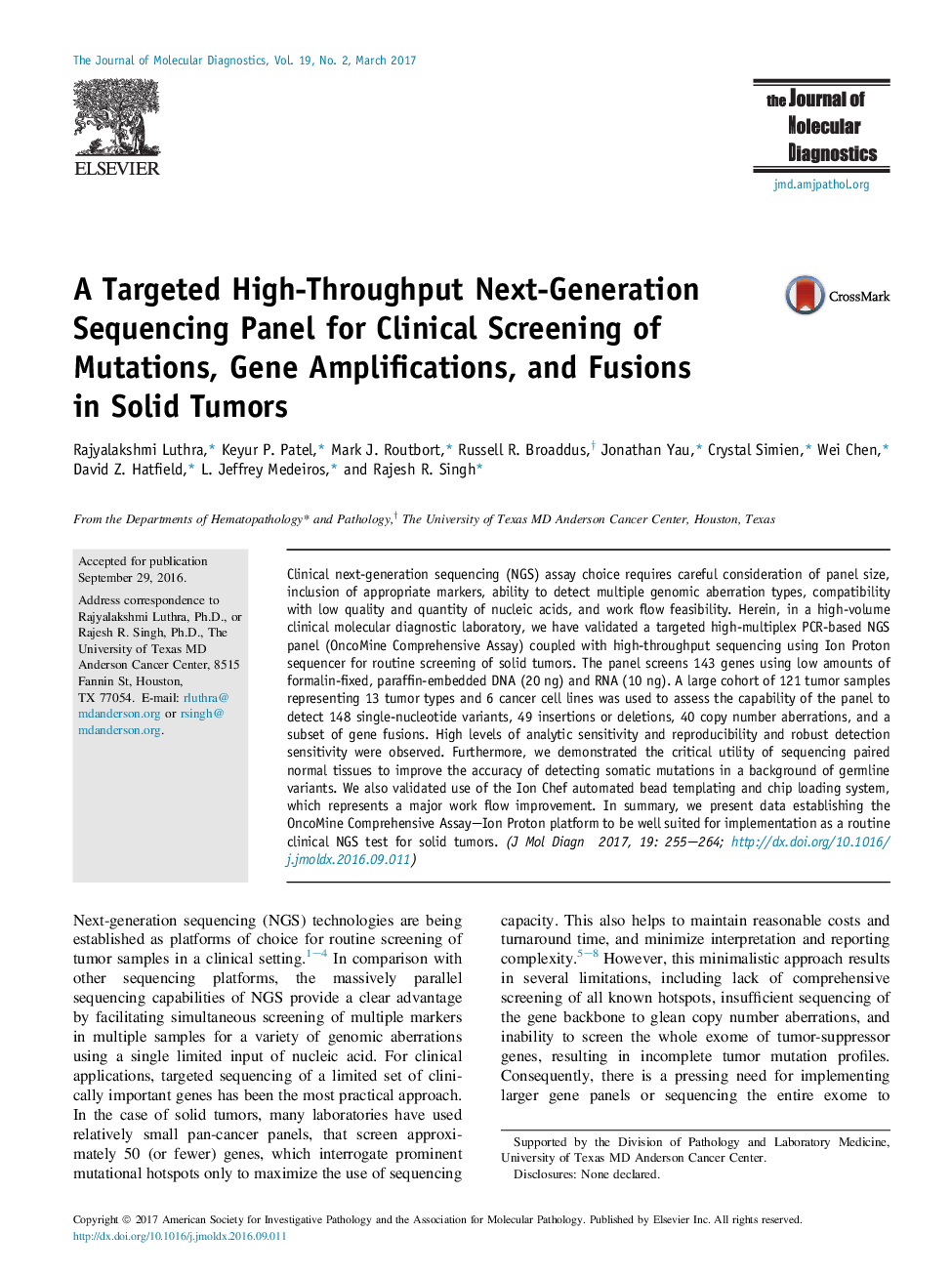| Article ID | Journal | Published Year | Pages | File Type |
|---|---|---|---|---|
| 5663064 | The Journal of Molecular Diagnostics | 2017 | 10 Pages |
Abstract
Clinical next-generation sequencing (NGS) assay choice requires careful consideration of panel size, inclusion of appropriate markers, ability to detect multiple genomic aberration types, compatibility with low quality and quantity of nucleic acids, and work flow feasibility. Herein, in a high-volume clinical molecular diagnostic laboratory, we have validated a targeted high-multiplex PCR-based NGS panel (OncoMine Comprehensive Assay) coupled with high-throughput sequencing using Ion Proton sequencer for routine screening of solid tumors. The panel screens 143 genes using low amounts of formalin-fixed, paraffin-embedded DNA (20 ng) and RNA (10 ng). A large cohort of 121 tumor samples representing 13 tumor types and 6 cancer cell lines was used to assess the capability of the panel to detect 148 single-nucleotide variants, 49 insertions or deletions, 40 copy number aberrations, and a subset of gene fusions. High levels of analytic sensitivity and reproducibility and robust detection sensitivity were observed. Furthermore, we demonstrated the critical utility of sequencing paired normal tissues to improve the accuracy of detecting somatic mutations in a background of germline variants. We also validated use of the Ion Chef automated bead templating and chip loading system, which represents a major work flow improvement. In summary, we present data establishing the OncoMine Comprehensive Assay-Ion Proton platform to be well suited for implementation as a routine clinical NGS test for solid tumors.
Related Topics
Health Sciences
Medicine and Dentistry
Health Informatics
Authors
Rajyalakshmi Luthra, Keyur P. Patel, Mark J. Routbort, Russell R. Broaddus, Jonathan Yau, Crystal Simien, Wei Chen, David Z. Hatfield, L. Jeffrey Medeiros, Rajesh R. Singh,
